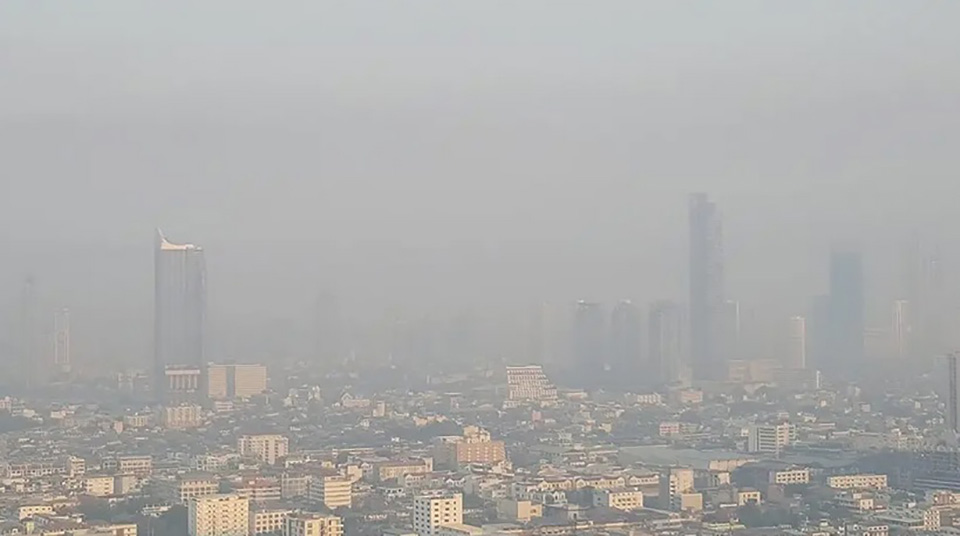
Bangkok is on alert as the city faces a spike in ultra-fine dust pollution levels. The Bangkok Metropolitan Administration (BMA), led by Governor Chadchart Sittipunt, said it is closely monitoring the situation and is prepared to implement a work-from-home program if unsafe levels persist for three consecutive days.
The capital is expected to experience poor air quality from Jan 18 – 20, prompting the BMA to issue warnings through its network of over 50,000 members. Residents in 17 districts, including Laksi, Chatuchak, and Klong Toey, have already been advised to prepare for harmful pollution levels.
Data from Thailand’s Geo-Informatics and Space Technology Development Agency (GISTDA) indicated that on Monday, Bangkok’s ultra-fine dust particles ranged between 31.1–58.3 µg/m³, surpassing the government’s safe threshold of 37.5µg/m³. Neighboring provinces such as Samut Songkhram and Samut Sakhon reported even higher levels, reaching dangerous red-coded pollution levels.
The increase in dust levels is attributed to poor air conditions and a significant rise in hotspots in the central region. Bangkok recorded 1,089 hotspots from January 1-9, a 107% increase compared to last year. The BMA has set up eight clinics to cater to individuals with respiratory issues, complemented by a telemedicine option available through the “Mor Kor Thor Mor” (Bangkok Doctor) application.
Highlighting the susceptibility of children to pollution, Health Department Deputy Director-General Dr Atthapol Kaewsamrit advised that children should wear face masks and immediately seek medical care if they encounter breathing issues.
Last year, the Pollution Control Department (PCD) registered more than 9,000 complaints related to environmental issues, primarily concerning strong odors, dust particles, and excessive noise. (NNT)








